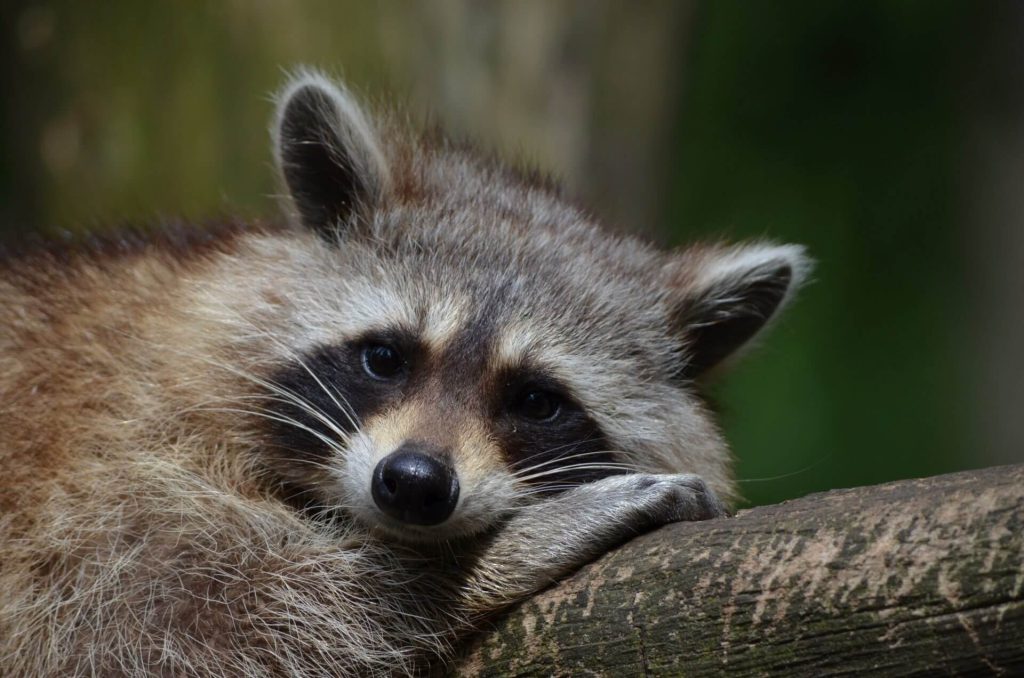
Raccoons are notorious wildlife pests. They break into your yard or house and wreak havoc on your property. Typically coming out at night, they sometimes venture out of their dens in the daytime searching for food.
You’ve probably tried different ways to keep them off your premises but to no avail. They’re smart creatures after all, with a series of studies in the mid- to late 20th century showing raccoons can solve problems and remember the solutions up to 3 years later.
So how do you outwit these intelligent creatures? The first step is getting to know them.
Raccoon Habitat and Diet
Raccoons are native to North America, and in the U.S. can be found almost everywhere, except in parts of the Rocky Mountains and southwestern states. They are adaptable and live in a wide range of habitats—from mountains and forests to farms and cities. However, since the first urban sighting in Cincinnati in the 1920s, they have become more prevalent in suburban areas than rural areas due to the abundance of food and shelter, lack of predators and restrictions in hunting and trapping.
A raccoon’s diet is also adaptable. Being opportunistic feeders, they’ll munch on anything from nuts and fruits to insects, reptiles, fish, birds and eggs—even worms, bird seed, pet food and garbage.
You’ll likely catch raccoons “washing” their food, but they’re actually feeling it with their very sensitive fingers, removing unwanted parts in the process. (Raccoons have poor eyesight but have well-developed sensory nerves at the bottom of their feet.)
Raccoon Damages and Diseases
A threat to a homeowner’s peace and wellbeing, raccoons leave telltale signs, so depending on where you live, look out for these common indicators that a raccoon has been in your premises.
- Damage to shingles, walls, insulation, electrical wiring or other parts of your house or building
- Droppings, urine stains or a nest made from built-up materials
- Dispersed thrash and/or raided and tipped trash bins
- Raccoon paw prints
- a lot of holes in your lawn or mulch pile
- wrecked garden
- injured or dead chickens or birds, missing or eaten eggs and disturbed nests
- toppled stalks and ripped or half-eaten ears of corn (or other crop)
- empty bird feeders
- devoured pet food
In addition to causing damage, contact with raccoons or their waste also spreads diseases that pose serious health risks to people and their pets. Raccoons are a primary carrier of rabies in the U.S. and are responsible for 60% of the rabies cases in Maryland. In 2018 alone, the Maryland Department of Health recorded 704 rabies cases. They can also transmit parvovirus and canine distemper to domestic dogs, plus roundworm, leptospirosis and Salmonella or E. Coli.
Long-term Raccoon Control and Removal
Because racoons are not only a nuisance but also a potential health hazard, it’s understandable why homeowners are itching to remove these pests from their properties. However, dealing with these nocturnal pests requires proper training, protection and equipment. (If you do this on your own, you could be bitten, scratched or worse, exposed to diseases.)
Your best bet for a long-term solution would be to contact a pest control professional.
Are raccoons wracking your nerves tonight? Contact On The Fly Pest Solutions so you can sleep soundly again.

